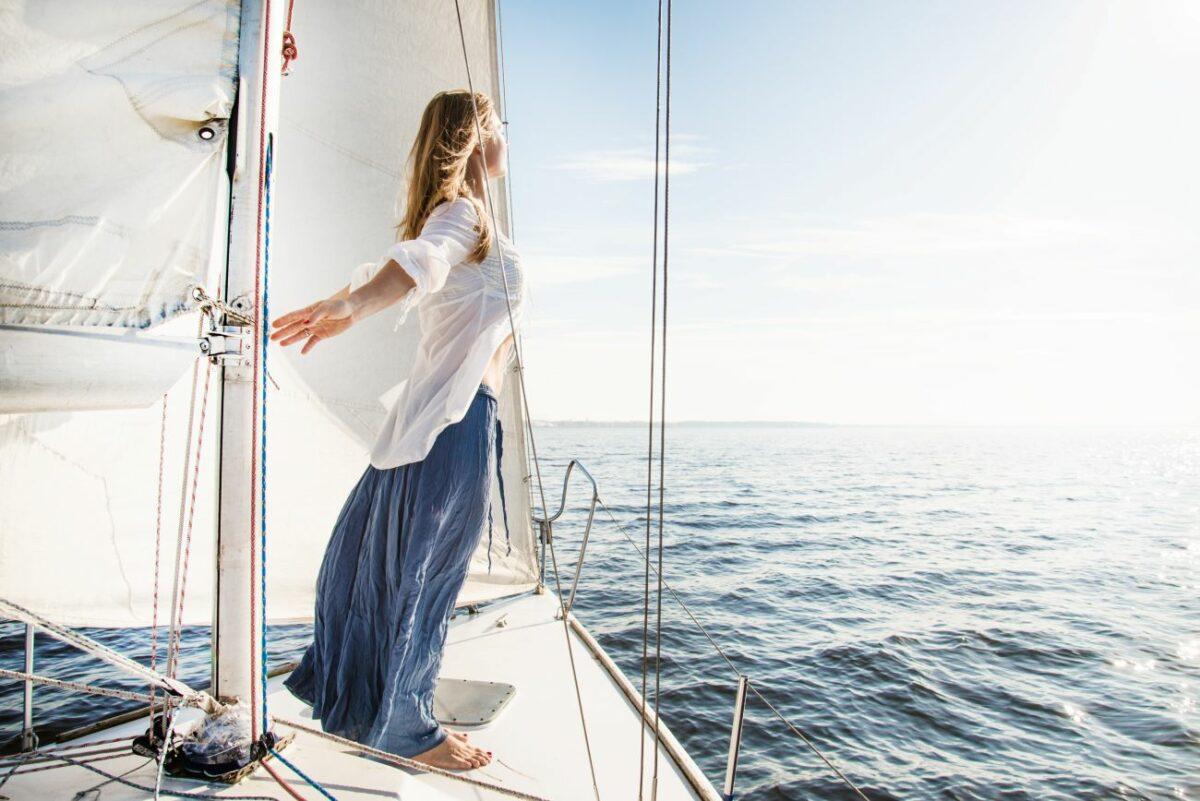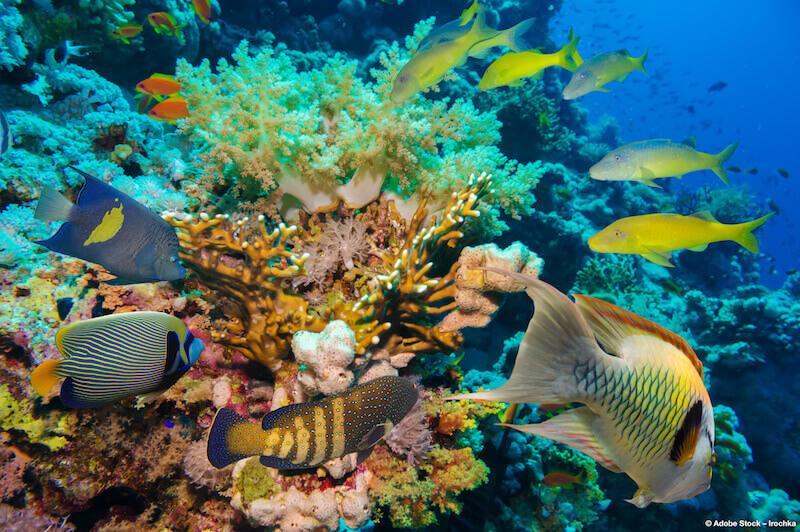“The topic of sustainability is everywhere,” writes YACHT, Europe’s largest sailing magazine, in its December 2023 issue. Nowadays, there is hardly a press conference where shipyards, suppliers, or regatta syndicates do not report on their environmental commitments. Above all, however, reader feedback has shown that environmental awareness in the sailing community is increasing. However, interest alone is not enough to make sailing and sailing vacations more environmentally friendly. Read on to learn what concrete steps can be taken.
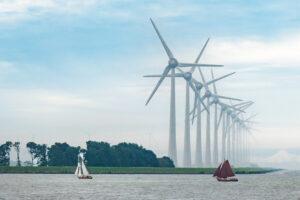
Setting sail towards greater sustainability
Sailboats are considered to be significantly more sustainable than many other types of recreational boats, especially if they are powered primarily by wind and the outboard motor is rarely used. Wind power allows sailing to consume little to no fossil fuel, which significantly reduces CO₂ emissions.
Sustainable sailing powered by wind and sun
However, modern sailing boats have an additional engine, as well as a number of energy-consuming devices on board. Solar boats* can be an environmentally friendly alternative. You can find these boats on the global yacht charter platform, BoatAround. The link provided only shows boats powered by solar energy.
What are the advantages of a solar-powered boat?
Solar energy is an excellent option for sailboats because it doesn’t consume any fuel and doesn’t produce harmful emissions. Solar energy is a renewable resource, making it a sustainable way to power boats. Rising fuel prices and concerns about climate change are leading to an increase in the number of solar-powered boats. More and more sailors are considering this option and relying on solar power instead of traditional engines.
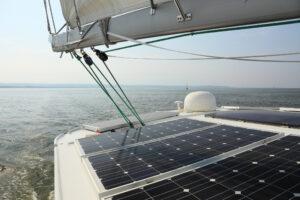
The advantages of solar-powered sailboats are clear:
- Reduced Emissions: Solar energy is clean and renewable. It does not produce greenhouse gases that contribute to climate change.
- Lower costs: Solar energy can also help reduce costs. Reducing fuel consumption lowers operating costs without sacrificing range.
- Improved air quality: Solar boats can improve air quality by reducing the emission of harmful pollutants produced by engines.
- Less need to dock: A major advantage of a solar boat is that it can produce electricity at sea (provided there is enough sunlight). This means you don’t have to dock as often, which gives you more flexibility and independence as a sailor.
- Stored energy: Many solar boats have photovoltaic panels and a storage system. This allows you to continue sailing with solar energy even when the sun isn’t shining. Fuel is then only needed in emergencies.
How to make your sailing vacation more sustainable
Although sailing is considered environmentally friendly, it still impacts sensitive marine ecosystems. For example, anchors can tear up seagrass beds, diesel engines release emissions into the air, and trash accumulates during a trip — often ending up in the ocean. However, making a few conscious decisions can make a big difference. Here are some ideas on how to make your sailing vacation more sustainable:
#1 Rent. Don’t buy.
Although owning your own boat sounds like freedom, it’s rarely sustainable. The construction, maintenance, and storage all cause high emissions, and it’s not worth it if the boat is only used a few times a year.
On the other hand, a charter boat is used for an average of 30 weeks per year — ten times more than a privately owned boat, which is only used for about three weeks. This means the environmental impact is spread over significantly more sailing days. Therefore, renting instead of buying saves money and CO₂.
#2 Look for solar technology when choosing a boat
As previously mentioned, the most sustainable option is a sailboat equipped with electric propulsion and solar technology.
#3 Use buoys instead of anchors
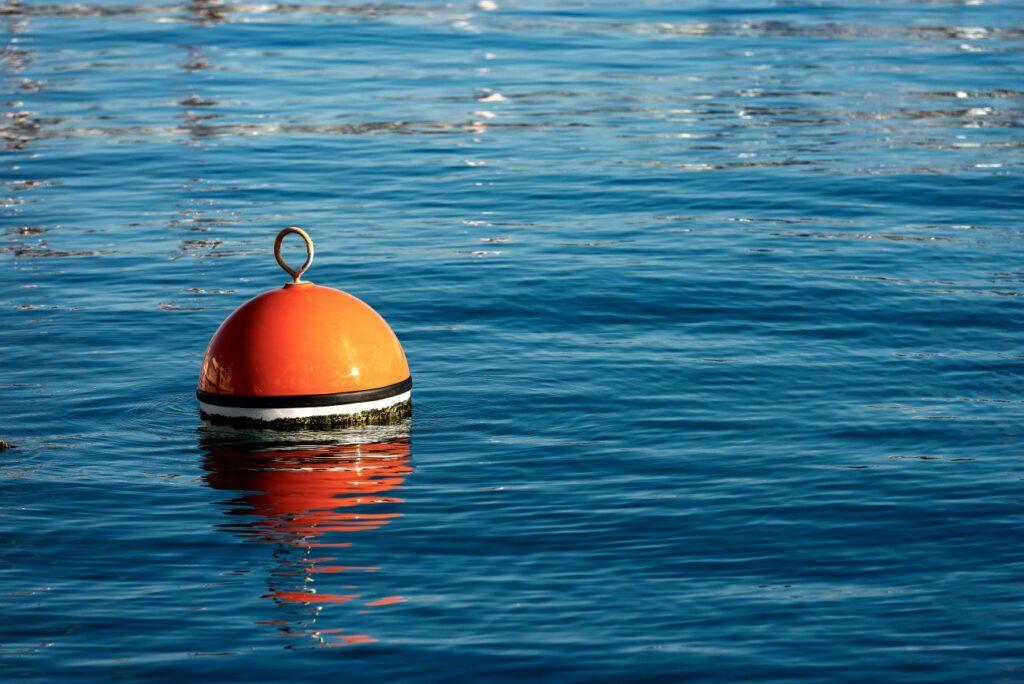
Anchoring can cause significant damage, especially in seagrass beds. These beds play a central role as CO₂ reservoirs and nurseries for many marine creatures. To protect these sensitive ecosystems, buoy fields are being established around the Italian islands, in Croatia, in the Baltic Sea, and off the coast of Mallorca, among other places.
Studies in the Stockholm archipelago show that bays with buoy fields have six to seven times more sensitive species than those without anchor bans. Therefore, by mooring here, you are actively protecting the marine life below the surface.
#4 Avoid plastic
Whether you’re shopping before your trip or picnicking on shore, actively avoiding plastic protects the ocean. Bring reusable containers, water bottles, and cloth bags with you and avoid single-use packaging, plastic bags, and disposable cups. Make a difference by picking up trash that you see on the beach or in the water and disposing of it safely on shore.
#5 Environmentally friendly travel
Traveling to and from your destination often accounts for the largest portion of your vacation’s carbon footprint. If possible, travel by train or carpool with public transportation. If flying is unavoidable, pack light to save CO₂ and consider offsetting your carbon emissions. Also consider taking one two-week sailing trip instead of two separate one-week trips.
#6 Sustainable accommodation – even on land
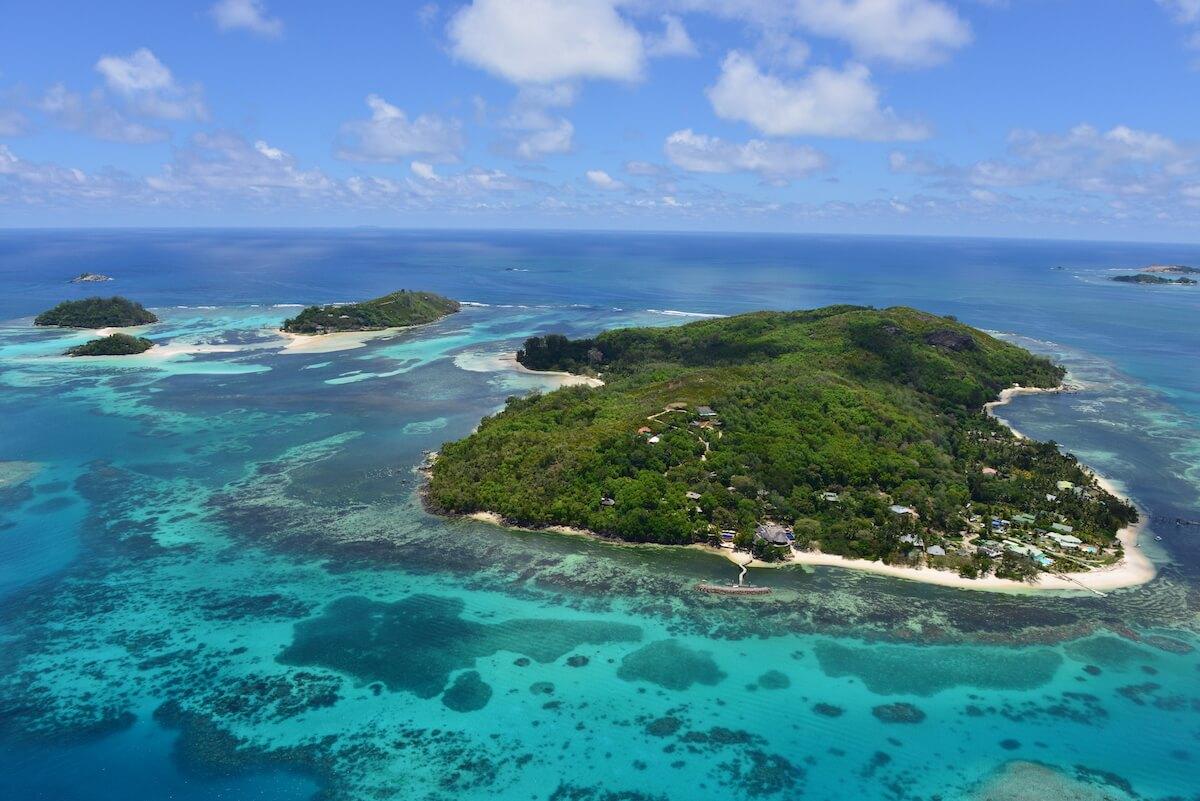
Not every trip lasts for weeks, nor does every night have to be spent on board. If you combine your sailing vacation with a stay on land, you can choose sustainable accommodations here.
These six Green Pearls® hotels are located right on the waterfront and are dedicated to responsible environmental and resource management.
- ADLER Spa Resort SICILIA – located on one of Sicily’s most beautiful coastlines, right next to a nature reserve. This luxurious, eco-friendly resort provides guests with organic cuisine and produce from its own gardens.
- Hotel Korinjak on the island of Iz in Croatia is a vegetarian, car-free, nature-loving retreat. By the way, dolphins can be seen off the coast!
- OCEANO Health Spa Hotel, Tenerife – Sustainable hotel with a holistic health concept and a wide range of yoga and fitness activities.
- Gili Lankanfushi, Maldives – focuses on recycling, local materials, and a no-plastic policy.
- Cerf Island Resort, Seychelles – puts energy efficiency and protecting coral reefs first. It is located on the edge of the Sainte-Anne Marine National Park.
- Lifestylehotel SAND, Baltic Sea – stylish, adults-only hotel with a relaxed atmosphere and sustainable design.
#7 Avoid sensitive areas
Water sports are not allowed in all places, and there is a valid reason for this. Breeding and refuge areas for animals, protected reefs, and shallow water zones should be avoided. The 8 rules for water sports enthusiasts in nature, which you can find here, provide some guidance in that matter.
#8 Don’t throw anything overboard, not even organic waste

Apple cores, banana peels, and other organic waste do not belong in the ocean. It may attract animals, pollute the water, and sometimes drift on the surface for days or weeks.
#9 Proper use and disposal of the waste tank
Throughout Europe, disposing of so-called “black water” in the sea is prohibited. Unfortunately, not everyone complies with this rule, as evidenced by reports of sewage problems off the coast of Croatia. Make sure to empty your holding tank in the harbor. This ensures proper disposal and prevents the contamination of coastal waters.
#10 Gentle cleaning on board
Only use biodegradable detergents and cleaning agents. It is best to scrub the deck and cockpit with only clear water.
#11 Less shower gel, more sea.
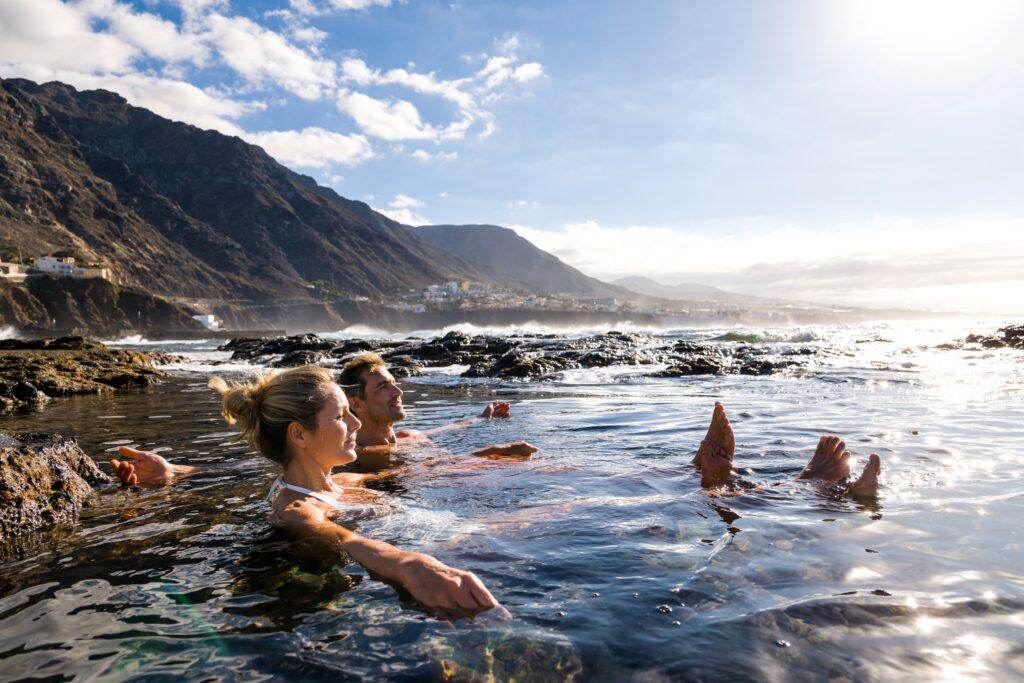
Make sure your shampoo, soap, and sunscreen are free of microplastics. Use an app like “CodeCheck” to easily scan ingredients.
#12 Don’t throw cigarette butts in the water
If there are smokers on your boat, make it clear from the beginning that they cannot throw their cigarette butts overboard. Cigarette filters are made of plastic, so they don’t decompose and can be deadly for seabirds. So, be sure to bring an ashtray with you and dispose of the butts in a trash can on land.
Are you sailing green yet?
Of course, this list is far from complete. Anyone who has ever gone sailing surely has their own ideas about how to be more environmentally friendly. What experiences have you had? Please share them with me in the comments!
*the link is an affiliate link. If you rent a solar boat through it, we will receive a commission.
This article is an update to the original article published on April 27, 2022. (Laura)
